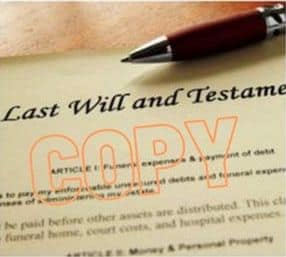Issues in Probating a Copy of a Will

Probating a copy of a will is possible but you must overcome a strong common-law presumption that the will has not been revoked.
If the person who made the will was the last person known to have the will in their possession and the will was not found in their possession upon their death, the will is considered either destroyed or lost and there is a strong presumption that they revoked their will. Matter of Estate of Gray, 143 A.D.2d 751 (1988); In re Evans, 264 A.D.2d 482 (1999).
If the person who made the will left it with the attorney draftsman for safekeeping, and the original will cannot be located upon their death, then there is no presumption that the will has been revoked.
If the original has been lost, destroyed or cannot be found, but you still have a copy of the will, you may be able to probate a copy of the will under SCPA § 1407. Under this section, a lost or destroyed will may be admitted to probate only if:
- It is established that the will has not been revoked
- Execution of the will is proved in the manner required for the probate of an existing will
- All of the provisions of the will are clearly and distinctly proved by each of at least two credible witnesses or by a copy or draft of the will proved to be true and complete
The second requirement is quite easy to prove. A will is duly executed under EPTL § 3-2.1 if the testator signs the will in front of at least two attesting witnesses, declaring that the instrument he is signing is his will. The witnesses must also sign the will at the testator’s request, attesting the testator’s signature within 30 days from the testator’s signing. The supervision of an attorney in the execution of the will and the presence of an attestation clause in the will gives rise to presumptive evidence of due execution.
The first requirement can easily be proven if the testator did not keep the original copy of the will, but instead left it with the attorney. If the testator did not have the original copy of the will and instead, it was the attorney who lost the will, there is no presumption that the testator revoked the will, if such will could not be found in his possession upon death.
Even if the testator had possession of the original will, if such will was proven to be destroyed due to force of nature, i.e., destroyed during Hurricane Sandy, then the presumption that the will had been revoked has been overcome and a copy of the will can be admitted for probate. Matter of Certoma, Jr., 55 Misc.3d 908 (2017).
The last requirement is usually proven by affidavits of the attesting witnesses that the copy offered for probate is a true and complete representation of the original will. Matter of Certoma, supra.
If the court denies a copy of the will for probate, then the estate of the decedent will be distributed in accordance with New York’s intestacy laws under EPTL § 4-1.1. Problems may arise when dispositions in the will are different from distributions under intestacy laws.
Usually, those who stand to inherit if the decedent died without a will (called distributees or heirs-at-law) will object to the probate of a copy of a will, if they stand to inherit more as distributees.
If you have issues regarding wills, would like to offer a copy of the will for probate, or would like to object to a copy of the will being offered for probate, we at the Law Offices of Albert Goodwin are here for you. We have offices in New York City, Brooklyn, NY and Queens, NY. You can call us at 212-233-1233 or send us an email at [email protected].
References:
